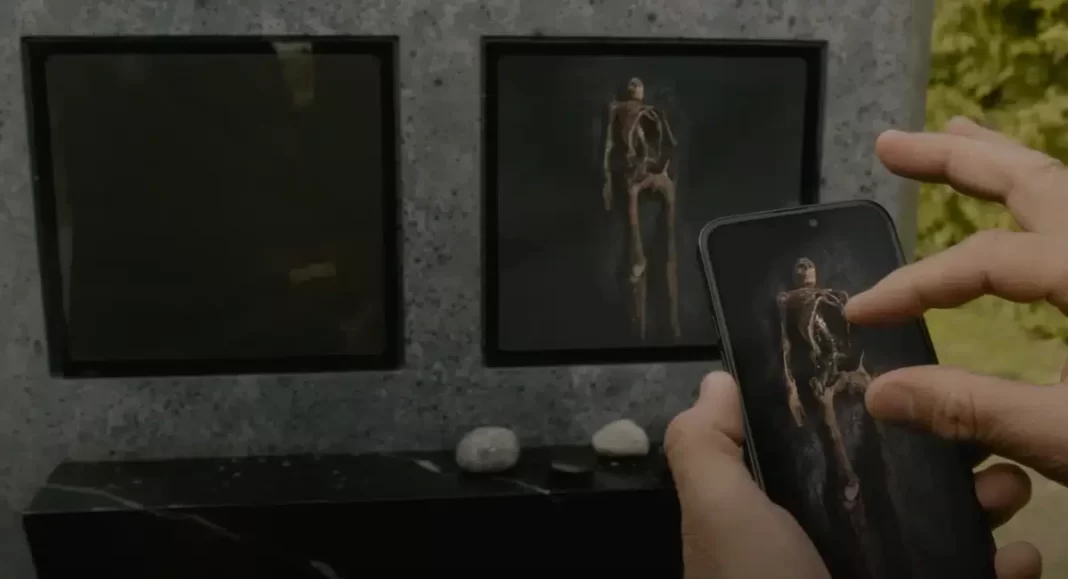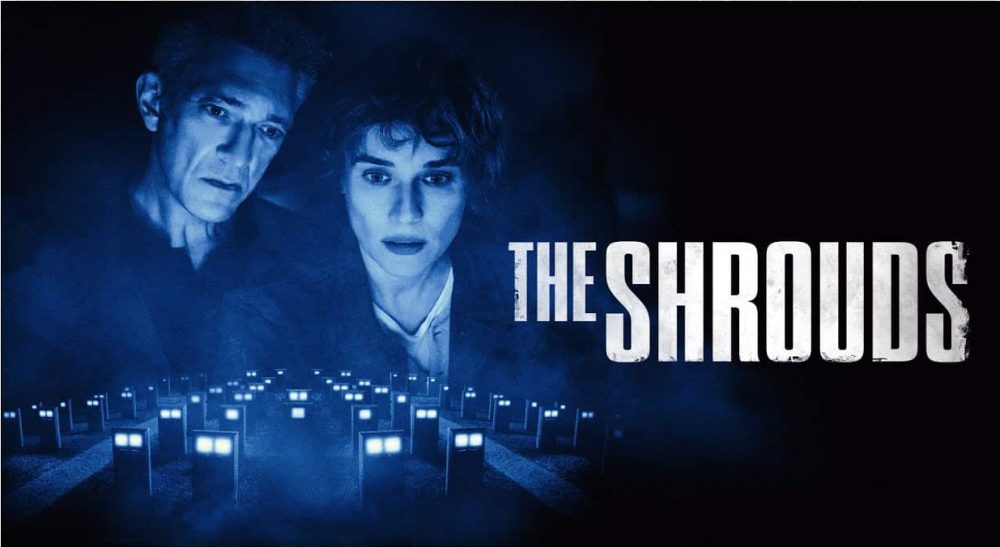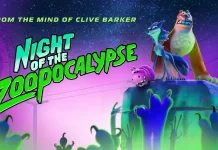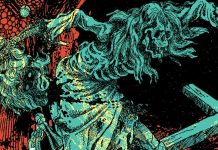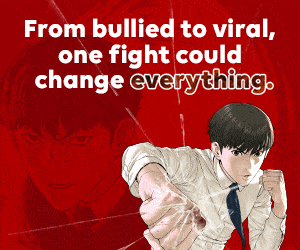David Cronenberg has earned the title of master of body horror thanks to films like Scanners, The Fly remake, ExistenZ, Videodrome, and The Brood. Each one pushes the boundaries of our understanding of the human body and the horrors that it both contains and can manifest. But they’re not just about monstrous transformations and body mods.
Cronenberg uses his signature brand of horror to comment on a myriad of things in each of his films. ExistenZ might be about a biologically infused video game console and how that paves the way for a new kind of addiction, but it’s also about our willingness to reshape reality and turn it into something we can replace life with. To fully engage with the movie, you need to be able to hold multiple conversations with it at the same time.
Cronenberg’s latest, The Shrouds, is precisely this, a mess of narrative strands concerned with the bigger picture. Only this time, chaos is given free reign. While the story is ultimately about death and grief, it is allowed to bring romance, conspiracies, sex, paranoia, burial plot tech, artificial intelligence, and anything else it can think of along for the ride. It’s up to us to make sense of it, a process not unlike the acceptance of death.
The Shrouds follows Karsh (Vincent Cassel), a graveyard entrepreneur that invented GraveTech, a tombstone with a small screen that offers visitors a live interactive feed of their loved ones’ decomposing bodies. The image is made possible by a cocoon-like shroud that scans the corpse for easy viewing. Karsh has been lost in grief after the passing of his wife Becca (Diane Kruger) four years before the story starts. She succumbed after an oddly suspicious battle with cancer. Karsh plans to be buried next to her, speaking to his inability to imagine a romantic life post-Becca.
One night, one of his GraveTech sites gets vandalized by what appears to be a group of hackers. Tombstones are damaged, some are destroyed, and access to the feeds has been cut off, including Becca’s. This is the start of a complicated search for the people responsible for these acts, and it will require Karsh to navigate rival companies trying to compete with GraveTech, his passive relationship with Becca’s twin sister Terry, his erratic relationship with Terry’s awkward ex-husband Maury (a show-stealing Guy Pearce), and a missing doctor that has a history with Becca.
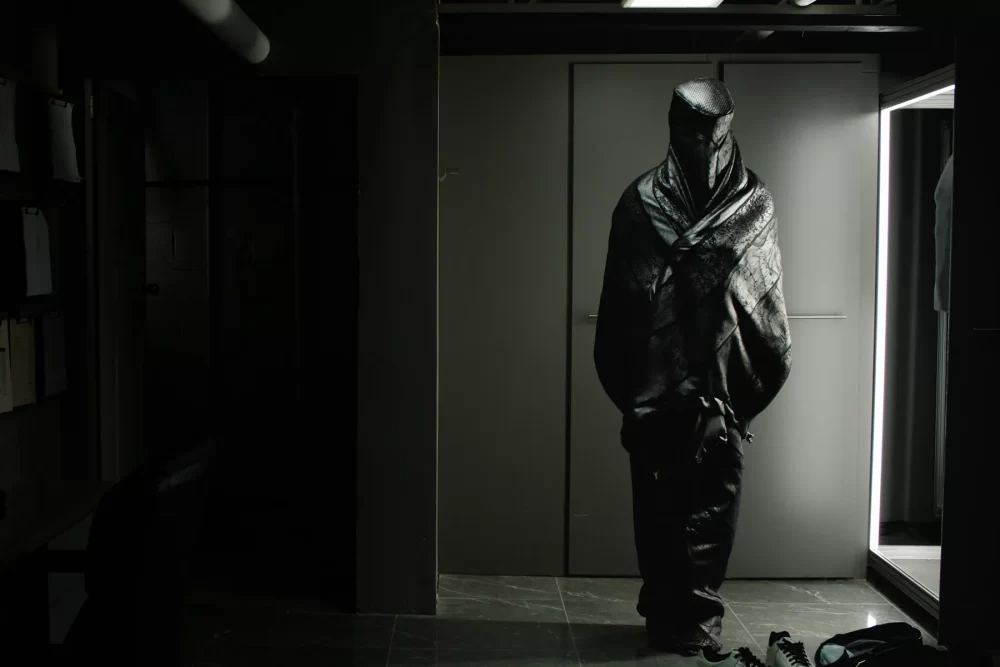
The Shrouds survives by the strength of its dialogue. Exchanges are packed with personal details and questions that propel the transition from one interaction to another. Fans hoping to get a healthy does of body horror should temper their expectations, though. While we get very interesting snapshots of the human body in decomposition or missing a few limbs, always in service of the story (as is always the case in Cronenberg’s films), it’s not the main focus. Instead, the intention is to examine the effects of loss on each character and how they dig into their takes on grief and acceptance (or lack thereof).
In a sense, Cronenberg takes death and applies it to each of the narrative strands discussed above. Terry’s divorce from Maury signifies its own kind of death, a type of ending that comes with its own grieving process. Karsh has an AI companion that resembles his wife that operates on his phone and his other devices, fleshing out his resistance to moving on. The vandalism itself represents another kind of loss, a more permanent one, as losing access to his wife’s feed is the equivalent of having whatever was left of her turn to metaphorical ash (should he not succeed in solving the mysteries that surround him, that is).
There are multiple entry points into the overarching theme of death, and they come in all manner of genres. There’s a bit of horror when it comes to the Shroud itself and the manner in which we relate to corpses, but then there’s a lot of humor injected throughout. Some of it is macabre, some of it is downright silly. But it works because it adds to the strangeness of the situation. At points, we even get what can only be argued as Cronenberg’s take on the rom-com (an idea The Beat’s reviews editor Zack Quaintance suggested while discussing the movie). This develops as Karsh slowly opens up to having some semblance of a sex life after Becca. Again, a chaotic blend that just lands.
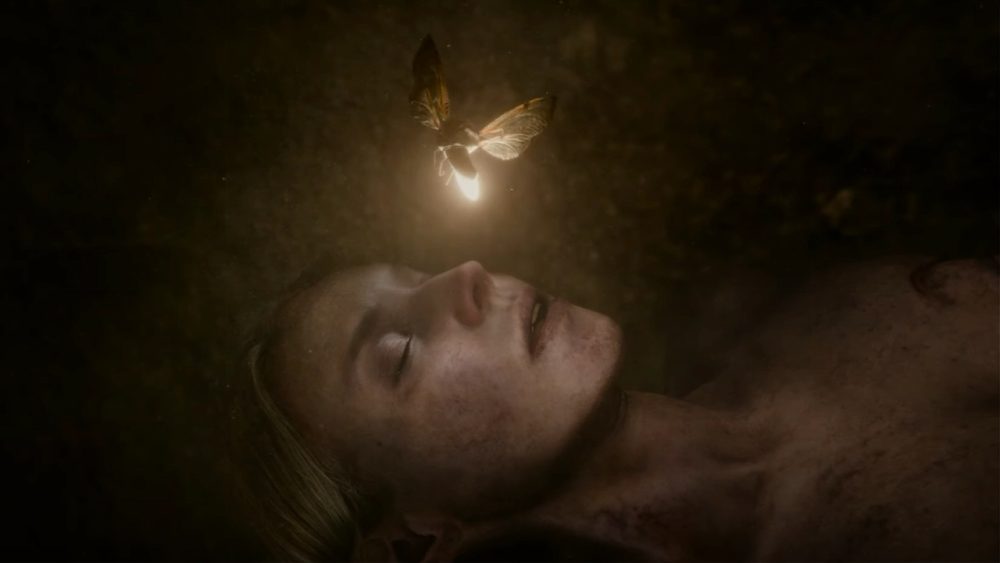
Cronenberg shoots the movie with a focus on faces and expressions to really highlight all of this. It’s a contemplative approach that invites viewers to look for tells and other hints characters might give away as they talk. It has a sense of pace not unlike that of a prose novel, something that is also true of his previous movie Crimes of the Future. We’re meant to dissect conversations, make decisions on who is or isn’t trustworthy, and interrogate the actions taken by others in relation to Karsh. You’re supposed to think about these things. It greatly rewards those that do.
The Shrouds is Cronenberg’s way of saying that death is but the opening of a Pandora’s box. There’s no finality. Instead, what we get is a slew of new plot threads. And they’re not exactly tuned to the same frequencies. They don’t all neatly fall into a single category. Death is denial. Death is conspiracy. Death is lying in the dirt. It’s sex. It’s everything, never nothing. And we’ll have to suffer through it in life, till we don’t.



